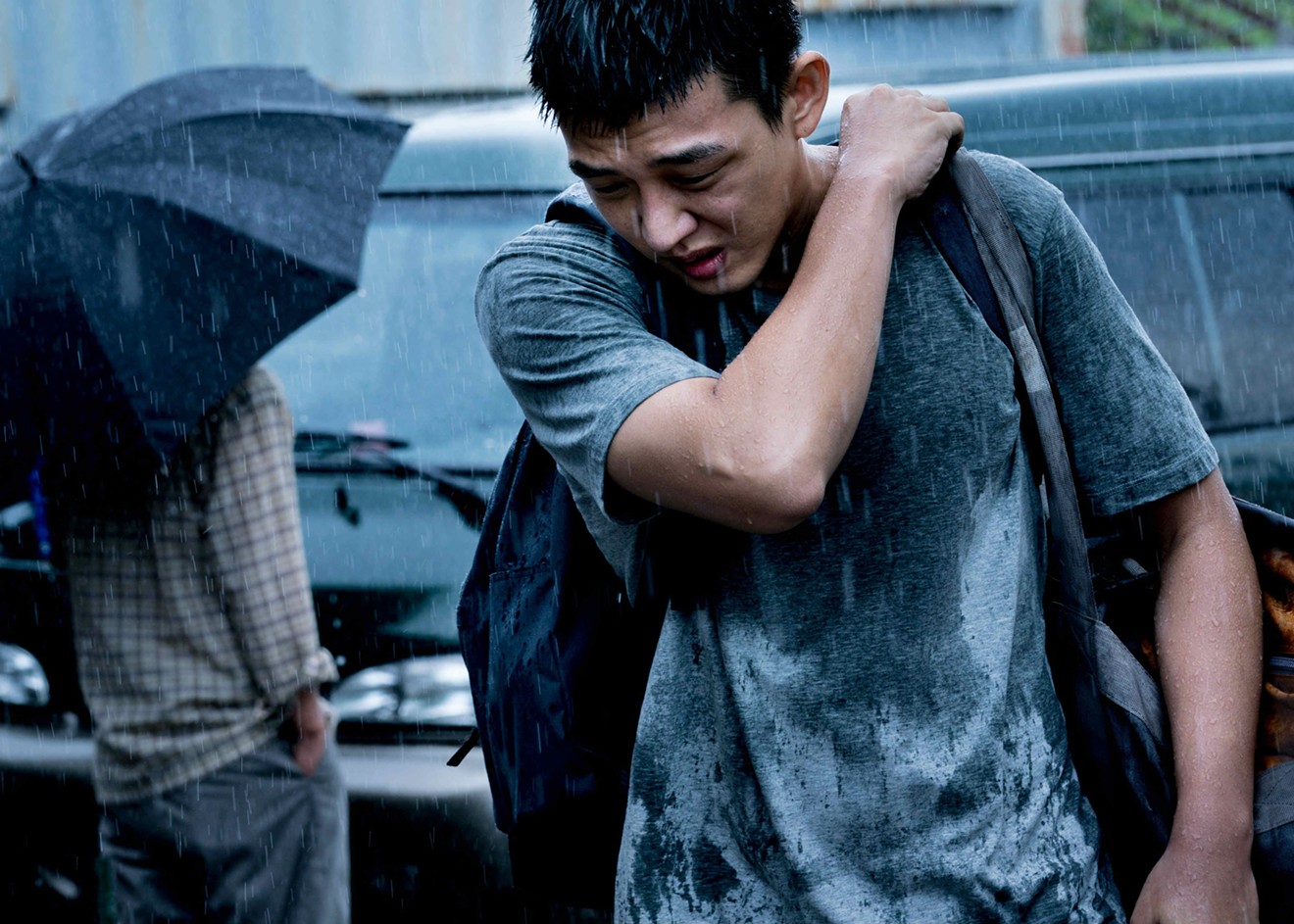Maybe it says more about my own mindset of late than anything else, but I spent much of Korean director Lee Chang-dong’s Burning — a look at obsession, class and romantic torment based loosely on Haruki Murakami’s short story “Barn Burning,” itself inspired by the William Faulkner story of the same name — thinking that the tale was eventually going to turn apocalyptic. Donald Trump blares on TV sets, the North Korean border is often in view, ominous flocks of birds keep blasting through the background, and the slow, rolling tension among the characters feels like it’s headed toward an outsized release. And an apocalypse of sorts does come — but not at all in the manner that I expected.
Burning opens with a meet-cute (or rather, re-meet-cute) between sturdy, shy day laborer Jongsu (Yoo Ah-in) and lovely, lively Haemi (Jun Jong-seo), who grew up in the same small town but haven’t seen each other in years. He wins a watch in a street raffle she’s overseeing; she notes that it’s a ladies’ watch, and suggests that he get himself a girlfriend so he can give it to her. Before long, they’re holding hands and making love, and he’s agreeing to cat-sit in her absurdly tiny apartment while she goes on a trip to Africa. Does her cat, Boil (note the name), even exist? Peeling and eating an imaginary orange in front of Jongsu, Haemi speaks playfully of believing in things hard enough that you can make them real. We start to wonder how much of this make-believe extends to her life, as well.
When Haemi returns from her trip to Africa with hunky, wealthy playboy Ben (Steven Yeun) in tow, Jongsu is devastated — though he doesn’t exactly show it; he looks out at the world with tired, bewildered eyes, his responses frustratingly muted, and Yoo Ah-in’s performance is a heartbreaking marvel of lovesick strain. Ben appears to be everything Jongsu is not, and can do everything Jongsu cannot. He says he has never shed a tear, and that for him there is no difference between “play” and “work”; Jongsu, meanwhile, has to do manual labor as he struggles to become a writer. While Jongsu’s father, an impoverished livestock farmer, is being tried for attacking a public official (the result of a volatile temper that runs in the family, which gives some shape to Jongsu’s own emotional submersion), Ben brags that he likes to burn other people’s empty greenhouses for sport, with no consequences. He could be a tech bro, a finance bro, a real estate bro or an inheritance bro, but he is certainly a man of the moment — a handsome, charming devil with a seize-the-day ethos and a casual desire to shape the world the way he sees fit.
Lee Chang-dong’s dexterity with the telling minutiae of human interactions ensures that Burning makes for an emotionally gripping film. I’m not sure he sticks the landing, however: The finale, while it doesn’t actually resolve anything, felt to me more convenient than convincing. But maybe that’s because I had too much invested in these characters; not unlike Taxi Driver, Burning pulls us into the inner world of a relatable central character, then pulls the rug out from under us.
The notion of imagination powering the world and how that fits into the creative life runs through Burning. Faulkner is referenced directly, but so is The Great Gatsby. Jongsu wants to be a writer, but it’s the others around him, particularly Haemi, who seem to have the imagination, the offhand creative force that can re-conceive reality. This is not, however, a movie about becoming a writer or an artist. Instead, it’s a melancholy look at how we imagine ourselves in the world, and all the ways that class, family and desire can come to complicate that.
[
{
"name": "Air - MediumRectangle - Inline Content - Mobile Display Size",
"component": "12017618",
"insertPoint": "2",
"requiredCountToDisplay": "2"
},{
"name": "Editor Picks",
"component": "17242653",
"insertPoint": "4",
"requiredCountToDisplay": "1"
},{
"name": "Inline Links",
"component": "18838239",
"insertPoint": "8th",
"startingPoint": 8,
"requiredCountToDisplay": "7",
"maxInsertions": 25
},{
"name": "Air - MediumRectangle - Combo - Inline Content",
"component": "17261320",
"insertPoint": "8th",
"startingPoint": 8,
"requiredCountToDisplay": "7",
"maxInsertions": 25
},{
"name": "Inline Links",
"component": "18838239",
"insertPoint": "8th",
"startingPoint": 12,
"requiredCountToDisplay": "11",
"maxInsertions": 25
},{
"name": "Air - Leaderboard Tower - Combo - Inline Content",
"component": "17261321",
"insertPoint": "8th",
"startingPoint": 12,
"requiredCountToDisplay": "11",
"maxInsertions": 25
}
]











